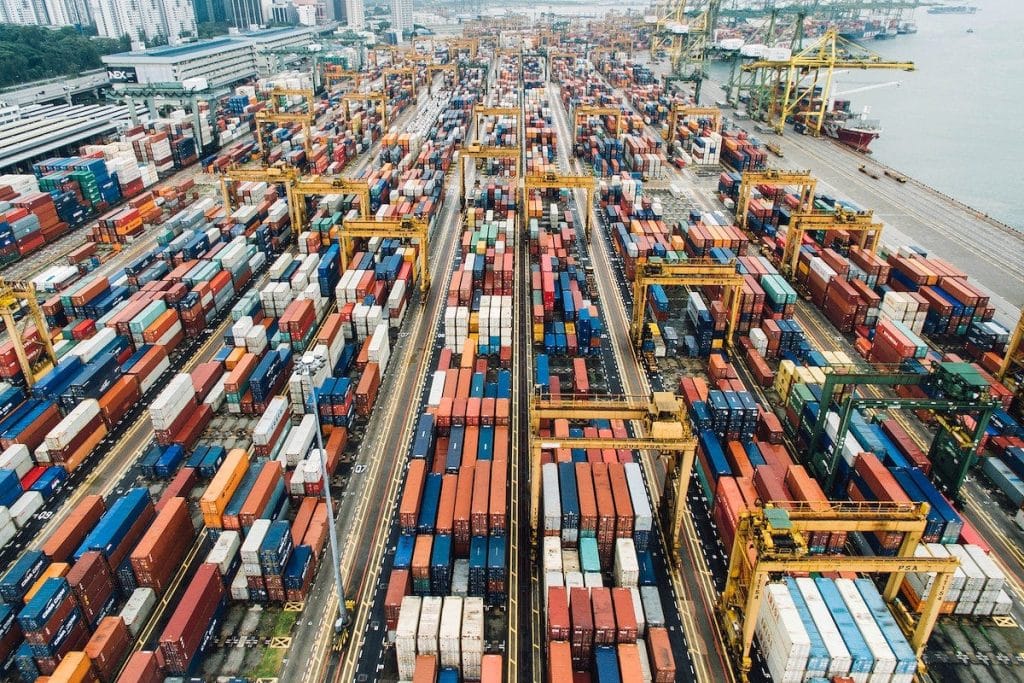Fears of a China Initiative Revival Stir Anxiety Among Chinese American Academics
Response to Xiang Songzuo: China Should Learn from the U.S.’s Mistakes as well as its Achievements
In an article I translated titled “Our Fundamental Problem is not China-U.S. Relations,” the author, Xiang Songzuo, indirectly criticizes the increasing primacy of foreign policy under President Xi. In his rhetoric and actions, President Xi has signaled China’s intention to be more active on the international stage. In his marathon speech at the 19th Party Congress, President Xi used the words “great power” or “strong power” 26 times to describe the significance of China’s rise. He also made 28 overseas trips to 50 countries during his first term, surpassing all his predecessors.

Though he acknowledges China’s deep desire to rise above its century of humiliation, Xiang argues that it is more prudent to exercise rationality and objectivity. Anybody who undertakes a rational assessment of China’s current state can only reach the conclusion that it is not yet time for China to set aside Deng’s advice to “hide your strength and bide your time” (韬光养晦 taoguang yanghui).
Xiang points to America’s long path to superpower status as one potential roadmap for China. He implies that American elites demonstrated strategic thinking when they mostly resisted the imperialist impulse to translate industrial capacity to global influence. Instead, the U.S. did not establish the international order until after World War II, 50 years after it had become an economic superpower. By waiting and leading the Allies to victory during WWII, the U.S. retained the respect of a critical mass of nations that enabled them to exert influence that was far more legitimate than the other European powers of the 19th century, who often succumbed to imperialism.
China has no desire to become an imperialist power, but it should still remember the basic lesson offered by the U.S.’s rise after WWII. An aspiring superpower should exercise patience and wait for an opportunity to emerge before it takes the reins of global leadership. In the meantime, China should continue to hide its strength and bide its time.
China’s Debate: Keeping a Low Profile (KLP) or Striving for Achievement (SFA)?
The views Xiang expresses in this article reflect one side of an ongoing debate within China. The other side believes that China should conduct its foreign policy in ways that strive for achievement (fenfa youwei 奋发有为). Chinese people who subscribe to this view agree with President Xi’s proactive foreign policy to charter a new course for China. According to proponents of SFA theory, such an outlook is necessary because China’s external security environment has changed fundamentally since Deng made his suggestion for China to keep a low profile.
In contrast, the side that Xiang occupies argues that China is still in the era of “peace and development”. Since China is not actually becoming less secure, there is little reason to discard Deng’s strategy to keep a low profile (KLP). Deng’s vision for China is just as relevant today as it was when he imparted his wisdom in the 1980’s.
The most public debate between the SFA and KLP factions occurred during a televised debate (link in Chinese) between a retired PLA Major-General, Luo Yuan, and a former diplomat, Wu Jianmin, who passed away in a fatal car accident two years ago. Wu Jianmin is perhaps the most famous “dove”. In effect, belonging to the dovish faction means his views tend to reflect KLP theory.

Wu is not only regarded in high-esteem for his theories on international diplomacy but also on the rising tide of nationalism within China. Reflecting on this nationalism, Wu maintains that China’s primary foreign policy problem is domestic in nature, and has little to do with the external security environment.
He clarifies that the era of peace and development is not ending on its own accord. In actuality, rising nationalism within China is prematurely ending this era. The implication is that if Chinese leaders and opinion makers do their part to roll back counterproductive nationalist sentiment, then China could make a complete return to a foreign policy status quo based on win-win development and regional stability.
One Chinese professor, Wang Jianyu, succinctly summarizes Wu Jianmin’s role in the debate, stating that he sought to serve as “a check and balance to nationalism and populism.” Wu regarded populism as opposed to reform, and nationalism as opposed to opening-up. Together, nationalistic populism undermines the very basis of Chinese foreign policy since Deng initiated the Reform and Open-up in 1979.

In emphasizing domestic development and criticizing nationalistic sentiment as incompatible with rationality, Xiang channels the essence of Wu’s view.
On the opposite side, Luo Yuan argued that the source of China’s problems can in fact be traced to a deteriorating external environment. Following this assessment, Luo states that the logical policy for China would be to prepare for war.
An even more striking difference with Wu and Xiang is Luo’s views on mass nationalism as a positive force. On a Dongbei news website (link in Chinese), Luo even went as far as to say that popular will is one thing that is more awesome(厉害)than aircraft carriers. He implies that in a hypothetical contest for dominance with the U.S. in the Asia Pacific, China can rely on popular will.
Unlike Xiang who insists that China must follow the U.S.’s example and wait for a strategic opportunity, Luo argues that China must capitalize on its period of strategic opportunity while it is still available. Writing specifically on the Diaoyu islands disputed with Japan, he emphasizes that waiting is not wise because “maritime resources will not wait for us, whatever gets looted by others is gone.” His perspective of the period of strategic opportunity as an opportunity to uphold maritime territorial claims in the East and South China seas belies official Chinese policy, which articulates that strategic opportunity refers to developing its domestic economy.
Is it Too Soon to Throw Away Deng’s Advice?
Recently, SFA theory has started to gain the upper hand in the battle of ideas within China. Even before Wu Jianmin died, Hu Xijin, the editor of The Global Times, brushed off Wu’s perspective as “the thinking of an old-fashioned diplomat” following concerns Wu raised regarding The Global Times tendency to stir up nationalistic sentiment in its coverage of Chinese foreign policy.

As the driving force behind President Xi’s foreign policy, the notion that China should strive for achievement is no longer just a theory. One prominent member of the SFA faction, Professor Yan Xuetong of Tsinghua University, describes how President Xi has made a partial departure from Deng’s long-standing policy to keep a low profile. Striving for achievement is clearly a departure because it rejects the past policies of indiscriminately cultivating beneficial relations regardless of whether those countries are favorable toward China. Instead, it is a selective strategy that either applies positive or negative ties depending on how favorable the country is toward China. But the departure is only partial because it only rejects one of the four principles of KLP policy (no making of enemies, no confrontation, no hoisting of banners, no serving as vanguard). Peace, development, cooperation, and win-win outcomes are still essential tenets of Chinese foreign policy, Yan argues.
Insofar as President Xi’s foreign policy represents a departure, Yan contends that it is warranted for three reasons. First, China is obligated to directly address potential conflicts rather than ignore them, especially as the probability of conflict increases. Second, contrary to what Xiang implies by referring to the example of America, proactively developing its strategic opportunity period is in China’s best interest. Finally, China is prepared to replace its non-alignment approach with efforts to forge a “community of common destiny”.[1]
Other Western scholars, such as Douglas Paal and Michael Swaine, contend that the turn away from KLP strategy has been sharper than Yan and others might be willing to admit. In a formative speech in October 2013, where he addressed a foreign policy work group on peripheral diplomacy, President Xi noted the significant changes in the external environment mentioned by Luo Yuan and other members of the SFA faction, “There have been great changes in the peripheral environment, that there have been great changes in our country’s relations with peripheral countries… and our interactions with them have become close in an unprecedented way (emphasis added).” The new emphasis on peripheral relations, according to several non-government sources, is a response to China’s deteriorating relations with its neighbors and escalating maritime disputes, especially in the South China Sea and Diaoyu islands. The hope is that China’s outreach on its periphery will strengthen the bonds with its neighbors, improve relations, and deescalate tensions.

The contradiction that emerges from President Xi’s elevation of SFA theory is also understated by its proponents. The problem is that it cannot simultaneously expect to benefit from its “charm offensive” in the region while “jealously guarding its far-flung territories”, as Douglas Paal states here. In other words, economic and diplomatic outreach is not the appropriate policy remedy to assuage concerns regarding China’s expansive maritime claims, which fall within the nine-dash line.
Some Chinese leaders and scholars acknowledge this contradiction, but are more confident about their ability to manage it. The reason for their confidence lies in the fact that Deng’s admonition has not actually been relegated to the ash bin of history as Western scholars suggest. Echoing Luo Yuan’s remark that foreign policy discourse is like a Chinese opera where some people play the role of “rational hawk” and others play “rational doves”[2], Chen Dingding, a professor at Jinan University, implied in an article that appeared in The Diplomat that Chinese foreign policy is influenced by people with ideas, and these ideas fall along a spectrum between KLP and SFA theory. Since these competing theories are not completely dichotomous, elements of Deng’s advice will continue to live on in Chinese foreign policy.
Binary theories may not accurately characterize the full range of perspectives of Chinese foreign policy experts. But the fundamental question that Xiang Songzuo poses in his article still remains. Is China ready to strive for achievement on the regional and international stage? Many decades ago, President Nixon wrote in Foreign Affairs with a resounding no: “China’s own national interest requires a turning inward toward the solution of its own domestic problems.” Of course, China has changed so much that some would argue that this statement is no longer relevant. To a degree, they have a point. It is understandable that China would want to adopt a more strategic foreign policy that specifically confers the benefits of relations to favored nations in the Asia-Pacific, and even punishes nations that are less compliant. However, given the ongoing domestic challenges Xiang describes, bolder ambitions, such as Xi’s desire to build a community of common destiny, are likely premature.
Until China develops more fully and spreads the benefits of its economic growth more evenly, China probably lacks the soft power to construct a common community based on an idea, and not a nationality or ethnicity. To understand the perils of expanding ambitions completely out of proportion to the moral authority of the corresponding values, China should look to the example of America, as Xiang suggests.
The Fundamental Reason Why Superpowers Struggle
China may have more to learn from the U.S. than Xiang even realizes. For Chinese people looking for wisdom on how to navigate China’s unchartered future, the crisis at the heart of contemporary American society is just as relevant as its past.
On its face, the idea that China has anything to learn from American socioeconomic problems seems ridiculous. As a developing country, China’s domestic problems clearly do not even compare to America’s.
Moving beyond these significant differences, it is impossible to miss that the fact that American and Chinese global legitimacy rest on myths. When people around the world think of the U.S. at its best, they imagine a country that has a threefold commitment to rights, equality and opportunity to all its citizens. American citizens, in turn, take the initiative to promote this vision by advancing rights, equality, and opportunity to distant corners of the globe. For this vision to have credibility, equality of opportunity of all Americans is a crucial pillar.

The growth of the multi-generational underclass, where poverty is handed down across generations, not only threatens the promise of the American Dream but the U.S.’s international credibility. Foreign policy success depends on credibly upholding American values domestically. For this reason, it is no exaggeration to infer that “Public investment to train and educate the underclass and restore American cities to health may be the most important foreign-policy initiatives that the government can take,” as one scholar wrote in an eerily prescient critique of American foreign policy.
Unlike the U.S., China hopes to make an example of itself in a different way. Rather than draw its legitimacy from abstract values, China is developing a concrete roadmap for developing countries that want to follow its example and attain material prosperity. African nations with the most positive views of China often highlight how Chinese infrastructure can transform their economies and lift their people out of poverty.
In reality, the thin veil that surrounds America’s inequality of opportunity also surrounds the ostensibly gleaming, futuristic Chinese cities and transportation networks. The infrastructure the world admires and hopes to emulate is built by migrant laborers who are sometimes not even paid the wages they are promised. Even when they are paid, they never have access to public services, such as education and health care, because of China’s restrictive hukou system. Xiang implies that this exclusion of millions of people from the benefits of China’s economic miracle proves that China is not ready to be a superpower.

What Xiang does not fully appreciate is that the core reason he suggests for why China is not ready to be a superpower is the same reason why American superpower is declining. In both countries, a large underclass that lacks access to essential public services, such as education and health care, undermines the credibility of its vision on the world stage.
Instead of government programs to train and educate the underclass and fix America’s crumbling infrastructure, the U.S chose to spend limited public resources on fighting two wars in the Middle East. As a result of this chronic neglect of critical needs, problems that had been percolating for decades have reached a tipping point. President Trump, a populist who rose to power promising to end this neglect, instead proposed a ten percent increase in military spending while cutting activities instrumental to the promotion of American soft power, such as the arts, science, and diplomacy.
Conclusion: China Should Learn from the Mistakes of U.S. Foreign Policy
Several decades ago, Chairman Mao wrote that China can either choose to pursue Soviet-style socialism or reactionary American imperialism, denying the existence of a third way as an illusion harbored by Chinese intellectuals sympathetic to the West. Today, China faces a similar binary decision to take one of two paths. Rather than originating from two foreign ideologies, the question that currently faces China comes from a debate that takes place entirely within its borders. Should China follow Deng’s principle to keep a low profile and focus on domestic development or should it instead choose to strive to build a community for common destiny on its periphery?
Many Chinese commentators are struggling to come to terms with the fact that that foreign policy under President Xi is not compatible with Deng’s foreign policy vision. They are correct to point out that China’s leaders could theoretically manage the contradictions inherent in these two foreign policy visions, but that is not how it has played out in practice.
China cannot claim that its foreign policy observes KLP principles if it maintains maritime claims that are so expansive they are beyond the ability to reconcile. No matter how much President Xi strives to build a community of common destiny, China will not be able to repair deteriorating relations with its neighbors because this outreach is designed to detract from rather than address the underlying symptom for rising tensions.
When Chinese people inevitably revisit the question between KLP and SFA, I hope that Chinese leaders learn from the mistakes of U.S. foreign policy. The U.S.’s recent history demonstrates that a country that does not satisfy its own values in the treatment of its citizens cannot effectively carry out an ambitious foreign policy project. This principle holds true because domestic neglect undermines the fundamental basis of foreign policy, which is the credibility of a country’s values.
China may prove to be an exception. Since its foreign policy does not rely on abstract values like the U.S., domestic problems may not hinder their influence with other countries as they do with the U.S.
Nonetheless, in my view, a wiser approach would be to first look inward to the sources of the domestic problems with the understanding that their eventual resolution will extend outward. That was Deng’s insight, and it should continue to be China’s foreign policy outlook. I therefore endorse the former Chinese Prime Minister Wen Jiabao’s view, which Wu Jianmin repeated, that keeping a low profile should be the guiding focus of Chinese foreign policy for the next 100 years (Wu Jianmin link in Chinese).
[1] Possibly to due to the concern that this phrase is similar to American manifest destiny, official Chinese government statements translate the phrase “community of common destiny” (命运共同体) to “community of shared future for mankind”. For example, at the World Economic Forum in Davos in 2016, President Xi stated that China’s “goal [is to] build a community of shared future for mankind” (推动构建人类命运共同体). At the UN in January 2017, Xi delivered a keynote speech with a similar title. The source of the confusion may come from the fact that the idea of common destiny differs from Western and Chinese perspectives. In the West, common destiny can be traced back to Ernst Renan, who proposed that the bonds that hold a nation together are stronger if they are based in deeply felt sense of community and shared destiny rather than ethnicity or culture. By contrast, Xi’s application of the community of common destiny draws from the concept of “tianxia”— or all under heaven (天下)—which predates the modern nation-state.
[2] Luo Yuan’s original Chinese is: 一切以国家核心战略利益为最高考量。鹰派必须是理性的鹰派,鸽派必须是剽悍的鸽派, which translates to: all (of these factions and elements) hold the core strategic elements of the state as the highest consideration. The hawkish faction must be rational hawks, while the dovish faction must be nimble and valiant doves.
By VINCENT PALUMBO-SMITH
Vincent Palumbo-Smith is a Spring 2018 intern for The Carter Center’s China Program.








